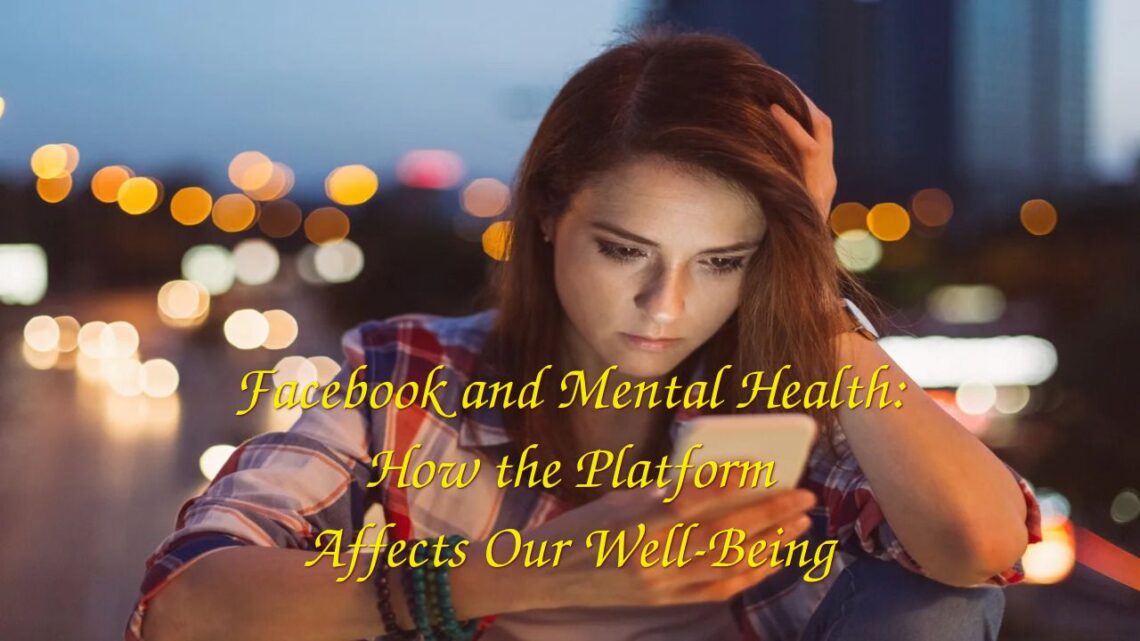
Facebook and Mental Health: How the Platform Affects Our Well-Being
Facebook is a social media platform that has changed the way we interact with people and share our lives. With over 2.9 billion active users as of 2021, Facebook has become a part of our daily routine. However, with the increase in its usage, concerns have been raised about its impact on our mental health. In this article, we will discuss how Facebook affects our well-being.
Almost every user wishes to obtain Facebook free likes to boost engagement. However, everybody should be aware of Facebook’s impact on mental health and overall well-being.
Comparison and Self-Esteem

One of the most significant impacts of Facebook on our mental health is the comparison and self-esteem issues that arise due to the platform’s nature. With everyone sharing their highlight reels, it is easy to feel inadequate and compare ourselves to others. This can lead to feelings of low self-esteem and anxiety, especially among vulnerable populations such as teenagers and those with pre-existing mental health conditions.
Studies have found that social media use is linked to increased feelings of social isolation, which can negatively affect our mental health. The constant need to check notifications and updates can create an addiction-like behavior, leading to a decline in our attention span and cognitive abilities.
Cyberbullying and Harassment

Another concerning issue with Facebook is cyberbullying and harassment. The anonymity provided by the platform can lead to people feeling more emboldened to engage in negative behavior. Cyberbullying can have a severe impact on an individual’s mental health, leading to feelings of depression, anxiety, and even suicidal ideation. Facebook has attempted to combat this issue by providing tools to report and block users engaging in such behavior. However, it remains a significant concern for many users.
Depression and Negative News

Facebook can also be a source of negative news and information, leading to feelings of depression and anxiety. The platform’s algorithms are designed to show us content based on our interests and behavior, which can create an echo chamber of negative news and information. This can lead to a sense of hopelessness and despair, especially during times of global crises.
Addiction and Distraction

Facebook’s design and user experience can lead to addiction-like behavior, leading to a decline in our mental well-being. The constant need to check notifications and updates can create a distraction, leading to a decrease in our productivity and focus. Studies have found that social media use can interfere with our sleep patterns, leading to insomnia and other sleep-related issues.
Positive Impact
While there are concerns about Facebook’s impact on our mental health, there are also potential positive impacts. For example, Facebook can provide a platform for social support, especially for those who may not have access to in-person support networks. Facebook groups focused on mental health can provide a safe space for individuals to share their experiences and receive support from others going through similar situations.
Additionally, Facebook can provide a source of inspiration and motivation through positive content and groups. These groups can focus on personal development, mindfulness, and well-being, providing users with tools to improve their mental health.
Conclusion
Facebook has become an integral part of our lives, and its impact on our mental health is undeniable. While there are concerns about its negative impact, Facebook can also provide a source of social support and inspiration for users. However, it is crucial to be mindful of our usage and take steps to ensure that we are not negatively impacted by the platform. By using Facebook in moderation and seeking out positive content and groups, we can use the platform to improve our mental health rather than harm it.





